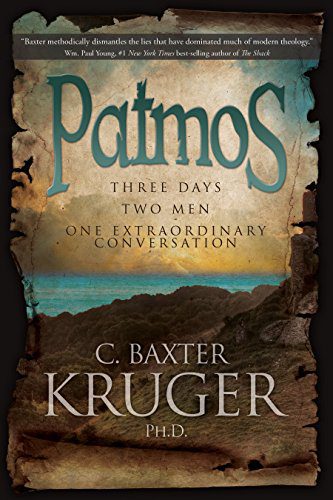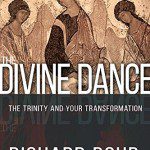The majority of my reading is generally nonfiction theology. But within the realm of fiction, there are few subjects I enjoy exploring more than time travel. So when I come across a novel with a time-travel plot, written by a theologian I appreciate, you’d better believe I’m going to want to read it. And C. Baxter Kruger’s Patmos does not disappoint.
The story is written from the perspective of Aiden, a modern-day theologian, who is unexpectedly transported through time and space (by the power of the Holy Spirit) to the island of Patmos with John the Apostle (whom, it turns out, is no stranger to Spirit-powered time travel himself). Over the course of three days, John and Aiden discuss all manner of topics related to the church, history, and theology.
I should clarify up front that if you’re looking for an action-packed adventure story, this isn’t it. The time-travel plot is mostly there to facilitate the dialog. Some earlier reviewers of Patmos likened the book to George MacDonald and C.S. Lewis, but I found it much more akin to Dostoyevsky’s The Brothers Karamazov, in how theological discussion dominates the text (though Patmos is graciously much shorter). I consider this to be a good thing, but it’s not for everyone.
The repeated theme is “union or separation”:
“There is only one battle.”
“One?” I asked, curious.
His eyes flashed, and he looked straight at me. “Union or separation,” he said definitively. …
I knew to the core of my soul that we had arrived at the heart of everything. I could see it in his face and in the way he held his head. I was not sure what he meant by union or separation, but it was clear that to him this was the crosshairs of the cosmos. …
“The truth of all truths: Jesus. Jesus in his Father and us in him. Without Jesus, what do you have?”
“Not much, I reckon. Just ourselves.”
“Ourselves and ideas of separation from God,” St. John declared in his most authoritative apostolic tone. “Listen, young Aidan.”
And as I did, I felt that my world was about to be shattered. “The assumption of separation is the great darkness.” (p. 91)
Throughout the book, John and Aiden discuss how nearly every bit of bad theology that has crept into the church can be traced back to the lie of separation. We are not separated from God, needing to find our way back to union. God is and always has been with us and for us. We merely need to wake up to this reality.
Beyond this overarching theme, their conversation dips into plenty of other great topics as well. For example, I particularly enjoyed their discussion about the Holy Spirit. John consistently uses female pronouns when speaking of her, and for good reason, which he explains to Aiden.
All-in-all, I found this book to be an enjoyable read filled with plenty of theological insights. It’s definitely worth checking out.
Pick up your own copy of Patmos as a paperback or a Kindle eBook.
Disclosure: I received a free copy of this book from SpeakEasy in exchange for an honest review.

















